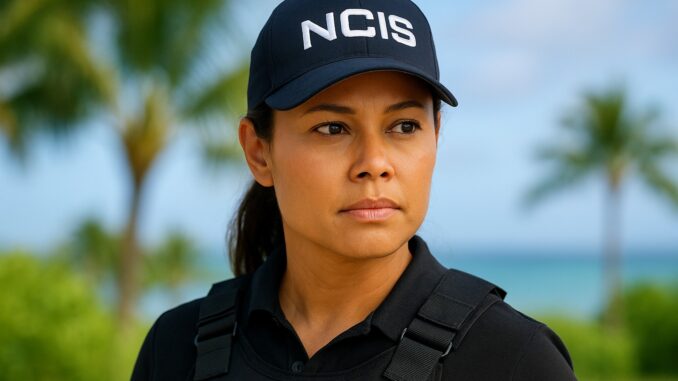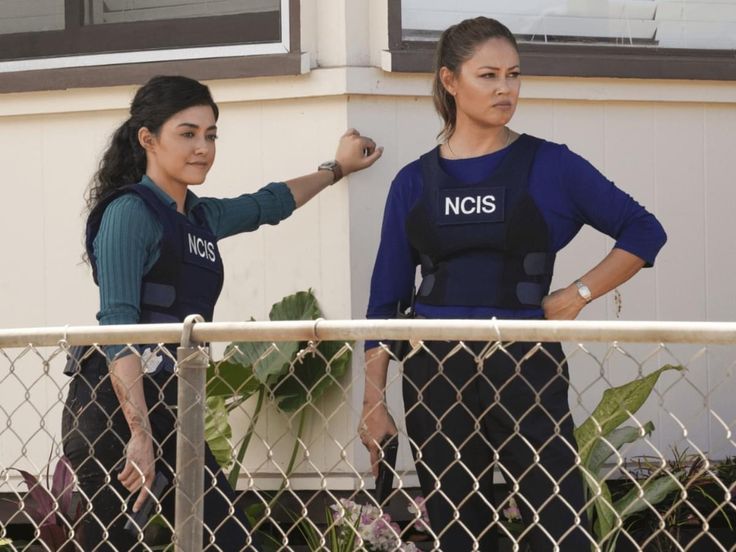
When CBS officially announced the cancellation of NCIS: Hawai’i, fans were heartbroken, confused, and—let’s be honest—a little angry. After all, the show had just started finding its rhythm with a strong female lead and compelling storylines. But if you’ve been following the TV industry closely, the writing was on the wall long before the network made it official.
So, why wasn’t this cancellation shocking? Let’s break it down step by step.
What Does “On the Bubble” Really Mean?
In TV industry jargon, being “on the bubble” means a show is sitting on the edge of renewal or cancellation. Networks often keep these shows in limbo while assessing ratings, streaming performance, and cost efficiency.
In simpler terms, it’s like being in TV purgatory—neither safe nor doomed, just waiting for the axe to fall or a miracle renewal.
The State of CBS’s Drama Lineup
CBS has always been home to powerhouse dramas: NCIS, FBI, Blue Bloods, and The Equalizer. These shows dominate ratings, attract loyal viewers, and bring in strong advertising revenue.
Unfortunately, NCIS: Hawai’i didn’t quite reach that same level. While it had a passionate fanbase, it often hovered near the bottom of CBS’s scripted lineup in total viewers and key demographics.
Why NCIS: Hawai’i Never Reached Full Potential
1. A Tough Time Slot
The show was up against stiff competition from other popular network series. When you’re battling established giants in the same time slot, even solid storytelling can struggle to stand out.
2. Franchise Fatigue
Let’s be real—NCIS has been around for decades. While the brand remains strong, there’s only so much crime-solving a casual viewer can take before things start feeling repetitive.
3. Moderate Ratings
Despite positive reviews, NCIS: Hawai’i’s ratings were lukewarm compared to its franchise siblings. It didn’t tank, but it didn’t soar either. That’s not a comfortable position for any show trying to prove its worth.
4. Production Costs
Filming in Hawaii isn’t cheap. The stunning backdrops come with a price tag, and when a show’s numbers don’t fully justify its budget, executives start sharpening their pencils.
The Changing TV Landscape
In the streaming era, even solid network hits face uncertainty. Viewership is fragmented, and traditional TV ratings don’t hold the same weight they once did. CBS—and networks like it—are increasingly prioritizing shows that perform across multiple platforms, including Paramount+.
NCIS: Hawai’i, unfortunately, didn’t make enough noise on streaming to guarantee survival.
The Importance of the NCIS Brand
The NCIS universe has always been a reliable brand for CBS. But when the main franchise (NCIS) and spinoffs (NCIS: Los Angeles, NCIS: New Orleans) started aging out, NCIS: Hawai’i was supposed to bring a fresh spark.
And to its credit, it did—for a while. Vanessa Lachey’s character, Jane Tennant, broke ground as the first female lead in the NCIS world. The chemistry, diversity, and setting were refreshing. But even with all those strengths, the show couldn’t maintain the momentum CBS needed.
The Ratings Game: Why Numbers Still Matter
Television is still a business. And while creative storytelling matters, ratings are the lifeblood of every show. NCIS: Hawai’i averaged around 5–6 million viewers—respectable, yes, but not enough to compete with FBI’s 8–9 million or the flagship NCIS’s consistent performance.
For CBS, which operates on stability and profit margins, that difference matters—a lot.
How Budget Cuts Sealed the Fate
Budget cuts across major networks have become common, especially after strikes, ad declines, and shifting priorities toward streaming. Expensive-to-produce shows with moderate ratings often become first on the chopping block.
And NCIS: Hawai’i—with its exotic filming location and ensemble cast—was a costly endeavor to maintain.
Viewer Loyalty vs. Network Strategy
It’s heartbreaking for loyal fans who invested emotionally in Jane Tennant’s team. But networks don’t renew shows out of loyalty—they renew them out of strategy. CBS likely evaluated that its limited prime-time slots could be better used on newer, cheaper, or higher-potential shows.
The Social Media Reaction
When news of the cancellation broke, Twitter (now X) exploded. Fans launched petitions, trended hashtags like #SaveNCISHawaii, and flooded CBS’s mentions. But despite the noise, the network stood firm.
Emotional outrage rarely changes hard business math—and this case was no different.
Could NCIS: Hawai’i Be Saved Elsewhere?
Some fans hoped Paramount+ might pick up the series. After all, other networks have revived canceled shows before (Brooklyn Nine-Nine, anyone?).
But streaming platforms make renewal decisions based on viewership metrics and cost efficiency. Sadly, NCIS: Hawai’i didn’t have the kind of explosive demand that triggers a revival.
A Tough Year for CBS Fans
The NCIS: Hawai’i cancellation wasn’t an isolated case. CBS also trimmed several shows as part of a broader restructuring. Networks everywhere are tightening belts, cutting mid-tier performers, and focusing resources on fewer but bigger hits.
Legacy of NCIS: Hawai’i
Despite its short run, the series made history. Jane Tennant stood tall as the first female special agent in charge within the NCIS universe. Representation matters—and that alone ensures NCIS: Hawai’i’s legacy won’t be forgotten anytime soon.
Lessons from the Cancellation
If there’s one takeaway here, it’s that no show—no matter how beloved—is safe in today’s entertainment landscape.
The formula has changed:
✅ Strong ratings
✅ Cross-platform engagement
✅ Controlled production costs
✅ Franchise longevity
Miss one of these ingredients, and even an NCIS spinoff can end up on the bubble.
Could We See These Characters Again?
Possibly. The NCIS universe loves crossover events. Jane Tennant or Kai Holman could easily make guest appearances in future NCIS installments—or maybe even in the rumored upcoming NCIS: Origins.
So, while the show’s done, the characters might not be gone for good.
Final Thoughts: Why No One Should Be Shocked
At the end of the day, NCIS: Hawai’i’s cancellation wasn’t a surprise—it was a business decision. The clues were there all along: modest ratings, high production costs, and a crowded franchise landscape.
Fans can be upset (rightfully so), but CBS’s move makes sense when viewed through the lens of cold, hard logic.
And while the islands may go quiet for now, the NCIS brand continues to evolve—proof that in Hollywood, even when one wave ends, another is already forming offshore.

Conclusion
The cancellation of NCIS: Hawai’i might sting, but it’s part of the natural cycle of television. Being “on the bubble” is a precarious place—one misstep, and the axe falls. Still, the series broke ground, made history, and left a mark on one of TV’s most successful franchises.
In the ever-changing landscape of television, survival requires more than heart—it demands numbers, adaptability, and timing. NCIS: Hawai’i may be gone, but its spirit will live on through the waves it created in the NCIS universe.